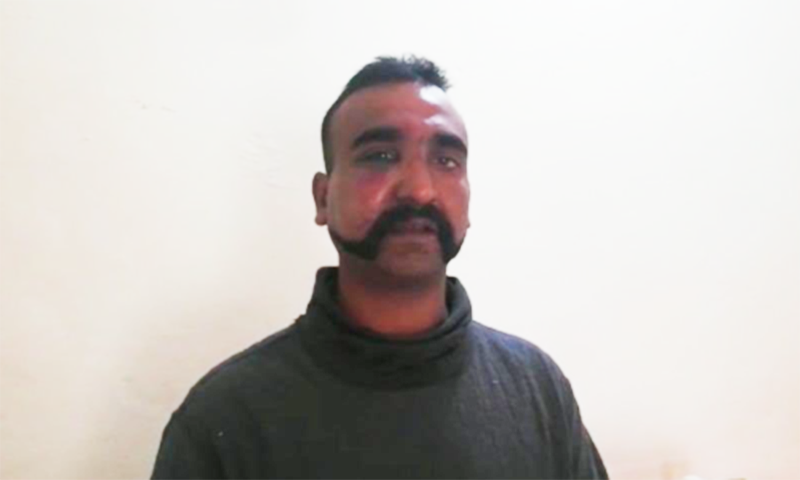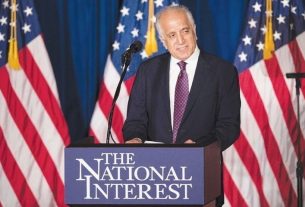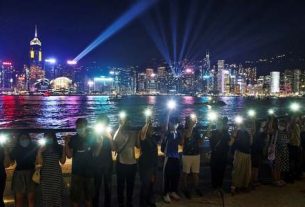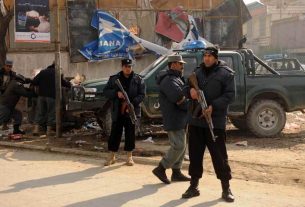Indian Air Force (IAF) pilot Abhinandan Varthaman’s capture by Pakistan armed forces yesterday has become the centre of attention in the conflict between the two states.
His status as a prisoner of war (PoW) under international law is being debated upon, along with whether, and if, as a PoW, he is being afforded adequate protections by Pakistan.
The Geneva Conventions, to which both Pakistan and India are signatories, apply in all cases of armed conflict which may arise between two or more High Contracting Parties (states are High Contracting Parties).
The fact that India and Pakistan have not openly declared war against one another does not negate the application of the Conventions. As long as the two parties to the Conventions engage in de facto hostilities, the rules and protections of the Conventions apply.
PoWs and their rights
The Third Geneva Convention (Geneva III) is the source of law related to PoWs. Article 4 of Geneva III defines the term ‘prisoners of war’ as including “members of the armed forces of a Party to a conflict,” which Abhinandan unequivocally falls under.
Besides, Article 5 of Geneva III indicates that if there is any doubt as to the status of a PoW, “such persons shall enjoy the protection[s] of the … Convention until such time as their status has been determined by a competent tribunal.”
Article 13 of Geneva III provides that PoWs must at all times be humanely treated, which includes protection against violence, intimidation, unlawful acts and serious endangerment of health.
Moreover, PoWs have, inter alia, the right to receive adequate food and medical care, the right to be free from torture, the right to practice religious and other customs, the right to send and receive written communication and the right to make requests regarding conditions of captivity.
Article 17 of Geneva III obligates a detaining state to protect a PoW from physical and mental torture, and forms of coercion. Pakistan has stated, and shown through video evidence, that Abhinandan is being treated as per norms of military ethics.
India, however, has a different perspective, and has describedPakistan’s capture, and subsequent release of videos of his detention, as a “vulgar display of an injured personnel.” This is in part fueled by the initial images of Abhinandan blindfolded with blood on his face, which were later negated by a video of him sipping tea and acknowledging Pakistan army’s fair treatment towards him.
Humiliating and degrading treatment against PoWs is banned by the Conventions (Article 3), and PoWs are entitled in all circumstances to respect for their persons and their honour (Article 14).
India’s weak case
So, how strong is India’s case against Pakistan so far, in regards to Abhinandan’s treatment so far? Not so strong.
In 1994, American pilot Bobby Hall inadvertently entered North Korean airspace, and was shot down by North Korean forces. The pilot was subsequently captured, detained and interrogated by North Korea on military and personal matters.
The pilot’s status as a PoW under the Conventions revolved around whether the parties (i.e., the US and North Korea) were engaged in armed conflict. Even though there was no real active conflict between the two, North Korea decided to treat the pilot as a PoW regardless (possibly what Pakistan has done in this instance as well).
Questions mounted over whether North Korea’s interrogations against the pilot violated Article 17 of the Geneva III (which bars any form of coercion towards the PoW to secure information of any kind). Once released, the US did not press for a Geneva III violation claim against North Korea.
Perhaps the Americans looked at the whole situation holistically, as according to the PoW himself, he was not subjected to physical, mental torture, and was held in a room with a bed, bathtub and toilet.
As long as Pakistan’s main purpose of capturing the PoW is to disarm the captured PoW and afford the PoW relatively humane treatment, Pakistan will not violate Geneva III.
Some experts have viewed Pakistan’s release of initial video of Abhinandan’s capture (where he gives his name, rank and service number) as violation of Article 13 of Geneva III (violation of a PoW’s insult and public curiosity), interpreting the video as Pakistan’s intent to humiliate the captive and India.
Pictures and videos released of Abhinandan being captured, held, questioned and treated do not necessarily violate Geneva III. International Criminal Tribunals, interpreting Geneva III, have stated that a detaining state’s degrading and humiliating treatment requires intention to cause serious humiliation, degradation or a serious attack on human dignity.
Put it this way: India’s notion of Pakistan’s “vulgar display of an injured personnel” towards Abhinandan would require evidence of egregious display of humiliating treatment by Pakistan towards the captured pilot.
International law is well cognisant of the fact that in international conflicts, some degree of humiliation is normally a consequence of detainment, and that states don’t share the same view towards particular treatments.
Televised displays of captured soldiers is naturally not preferable, and captives should not be paraded as prizes of war, but High Contracting Parties (such as the US) have in the past released pictures and videos of detainees arriving in handcuffs, blacked out goggles and surgical masks. In 2003, the US even showed pictures of Saddam Hussain being checked for lice and having his DNA sampled.
The Geneva III protections against humiliation and degrading treatment are usually implicated in far more egregious matters (e.g., Abu Gharib, Guantanomo) than have occurred so far in this affair.
When can he be released?
The decision of when to release a PoW is a bit unclear. Article 118 of the Geneva III provides that “prisoners of war are to be released and repatriated immediately upon cessation of active hostilities.”
Nations that are involved in an internal or global conflict against state and non-state actors use the ambiguity of this Article to justify sustained detention with indefinite release of potential PoWs, the narrative being that hostilities amongst splinter groups never really cease.
However, in the case of hostilities between states (Pakistan and India), the “cessation of active hostilities” may be signaled by an agreement between them, or may even be done through gesture (e.g., reciprocal releases of PoWs by the states).
The politics of Abhinandan’s detention, treatment and potential release may be up for debate, but legally, there is no substantial indication of a PoW violation by Pakistan.



